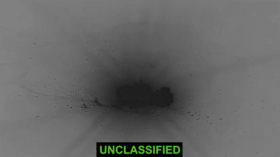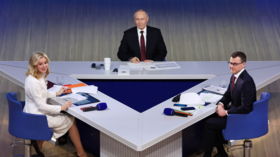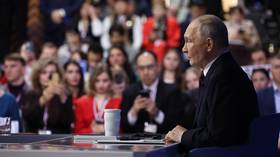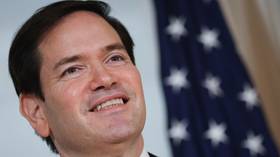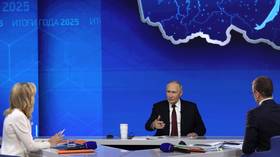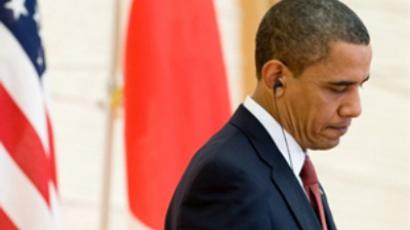Ensuring the “reset” button stays pressed

President Obama's upcoming visit to Moscow marks the moment of truth for US-Russian relations, which have found themselves in the process of a painful two-decade transition, and still remain at the crossroads.
Glasnost and perestroika, proclaimed by the last Soviet leader Mikhail Gorbachev, gave a glimmer of hope that the ghosts of the past and Cold War atavisms would be consigned to the history books. However, the short honeymoon of the first years of president Yeltsin with his strong anticommunist drive, and liberal economists labeled "Chicago boys" by the Russian communist opposition, turned into a period of bitter disappointment for both sides. In the late 90's, as the estrangement between the two sides grew stronger, democrats and republicans in Washington were trading accusations and asking themselves the question “Who lost Russia?”: a question which remained unanswered.
Then there was another chapter of hope and disillusionment started by Vladimir Putin's notorious call to George Bush shortly after September, 11 and George Bush's equally famous remark about the "Russian soul", which he discovered in the eyes of ex-KGB officer and new friend. Paradoxically, as the two presidents enjoyed each others’ company at numerous summits – driving a legendary Soviet-built Volga car in the Black Sea-side town of Sochi, or tantalizing their taste buds with delicious swordfish caught by joint effort in the clean waters of the Atlantic Ocean – inter-government relations soured.
As it was in the late 90's, the pendulum swung in the opposite direction. The war in Iraq, constant stalemate and reversal in the disarmament process, growing erosion of the legal framework of the international security system, the Bush administration’s plans to deploy ABMs in Eastern Europe and to grant Georgia and Ukraine a NATO accession map all contributed. These issues, along with ongoing heated debate on the fate of Russian democracy and new Moscow-backed authoritarian regimes in the post-Soviet space, reversed bilateral relations to the starting point when Mikhail Gorbachev spelled out his perestroika and new mentality principles.
It is an open secret that most of the decisions by the Bush administration, which brought an already-troubled US-Russia strategic partnership to its lowest point since the Cold War, were taken with total disregard of Russia's official position. However, it is equally true that it was not only George Bush’s stubbornness that brought bilateral relations to their current stage. New Russia, awash in oil wealth which, as then-President Putin bluntly put it, "got up off its knees", never failed to answer Washington with endless angry rebukes and irrational moves.
The Russian media were overwhelmed with paranoic anti-American statements made by numerous "experts": MP's from the pro-Kremlin "United Russia" party and proud Cold War veterans, who felt as if their best young days had miraculously come back. Some were telling blood-curdling stories about the CIA planning "to dismember Mother-Russia". Still others were explaining that the days of the United States were numbered, and soon we would witness the disintegration of the American Empire portraying itself as world police, aggressor and prison of free nations.
"Americans are throwing their weight everywhere and the time is ripe to teach them a lesson. Let us cut transit routs to Afghanistan and make them feel the suffocating effects", a Russian deputy, member of the Duma Foreign Affairs Committee told me last autumn. When I asked him if the American failure in Afghanistan met our national interests and if we were ready to step in to combat terrorism, he shouted with indignation, "Are you a fool or only pretend to be naive? Do you sincerely believe they are fighting terrorists in Afghanistan? They went there to control the region, and their mission contradicts our interests."
This was a mood shared not by large part of Russia's ruling elite, but also by ordinary folks here. However, the situation is by no means hopeless. Today there is another silver lining to the clouds, as President Obama’s top foreign policy pundit, Vice President Joe Biden, proposed a second edition of the almost-forgotten perestroika of Mikhail Gorbachev, voicing the idea of “resetting” bilateral relations.
Don't you find it quite symbolic that the two words "perestroika" and "perezagruzka" (the resetting button) in Russian language sound almost the same?
To Russia with love? It seems that will be President Obama's motto in Moscow, as he discovers the successor of the mighty Soviet Empire and former Cold War arch-rival, the country of bullet-proof Bentleys and ageing nukes. However, I can wager my entire collection of books on diplomacy that we will soon let ourselves into another trap if we fail to derive timely, proper lessons from the mistakes of the past. And the question "Who lost Russia?" will painfully come up again.
Let us try to sum up these lessons. The first point is that we should no longer confuse “strategic partnership” with two leaders' personal friendships, making bilateral relations over-personalized and lacking substance, as happened on previous occasions. We need to formulate positive a bilateral agenda which will make this relationship meaningful and beneficial.
The second point is that we should tone down the hawks on both sides who view strategic partnership as a path to unacceptable concessions undermining national security. Let us not forget that it is presidents who orchestrate the show, and not their milieu, which is trying to win the president's ear and sometimes mislead him, acting on behalf of powerful lobbyists or interest groups.
The third point is that we should never come back to that notorious "senior partner-junior partner" notion which Washington tried to impose on Russia during Presidents Clinton’s and Bush’s administrations. The official Russian position repeatedly voiced by President Medvedev has made it clear that Moscow will not tolerate it any more. And there is no other way to break the vicious circle.
The fourth point is that we should not only hit the reset button, but also upgrade the computer. If the hard disk and the software package are the same, the reset button will soon turn into a useless futile exercise.
And, finally, let bygones be bygones.
If we adhere to these principles the question "Who lost Russia?" will become obsolete.
Sergey Strokan, Russian newspaper "Kommersant" staff writer, for RT



